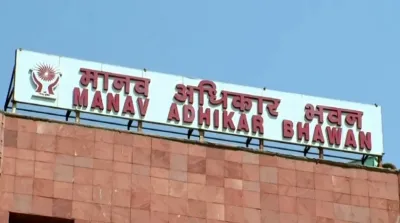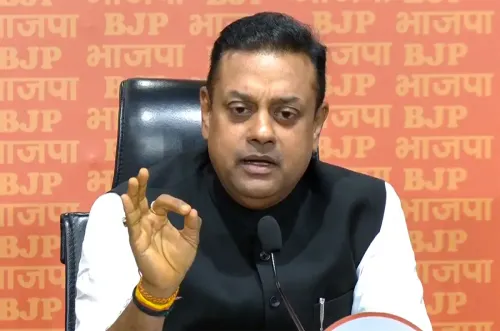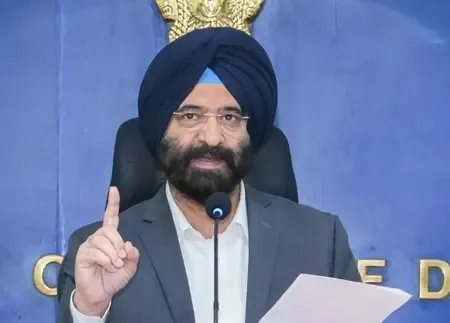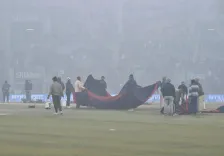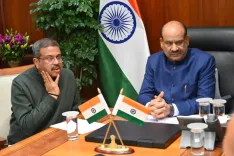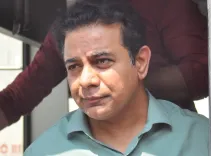Is Jagdeep Dhankhar's Resignation a Political Exit Disguised as a Constitutional Deception?
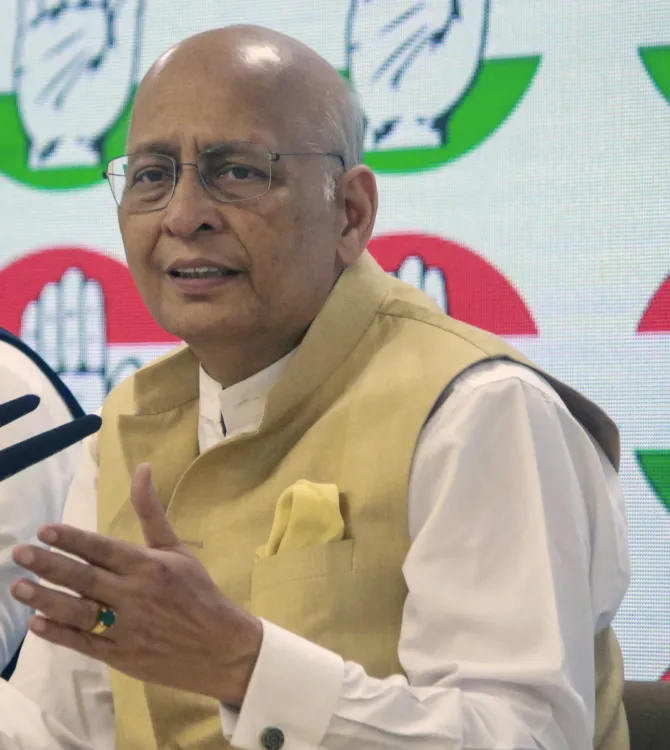
Synopsis
Key Takeaways
- Abhishek Singhvi challenges government narrative control.
- Dhankhar's resignation seen as a political tactic.
- Government accused of hypocrisy regarding impeachment.
- Concerns about the integrity of institutions arise.
- Potential for a unilateral inquiry into Justice Varma.
New Delhi, July 26 (NationPress) Congress MP Abhishek Singhvi referred to the resignation of Rajya Sabha Chairman Jagdeep Dhankhar as a "political exit disguised as a constitutional deception". He accused the government of displaying signs of insecurity regarding its inability to manage the narrative surrounding the impeachment motion against Justice Yashwant Varma.
In response to Parliamentary Affairs Minister Kiren Rijiju's assertion that no impeachment motion was accepted in the Rajya Sabha besides the one in the Lok Sabha, Singhvi stated, "Did the Chairman not clearly indicate that the Opposition motion was recognized by the House when he queried the Law Minister about the admission of a separate motion in Lok Sabha?"
According to him, Dhankhar's desire for both Houses to unite on this matter might be connected to his unexpected resignation and silence.
Singhvi emphasized, "We view Dhankhar's resignation as a political exit disguised as a constitutional deception."
He continued to assert that the potential for a joint parliamentary committee to investigate Justice Varma is now unlikely, as the government appears only focused on advancing its motion, which has been accepted in the Lok Sabha.
He stated, "There is a disparity between their public portrayal and their actions, especially concerning accountability in the judiciary. The BJP is displaying this kind of hypocritical behavior."
The MP criticized Union Minister Rijiju's remarks on Friday, denying any motion against Justice Verma being admitted in the Rajya Sabha.
Singhvi labeled the government's efforts to push its motion in the Lok Sabha as "institutional sabotage and constitutional overreach."
He questioned, "In a democracy, when you have the backing of most Opposition members, why act arrogantly and pursue an 'Ekla Chalo' approach?" Singhvi condemned the BJP for its "double-standards."
He remarked, "The government disregards collaboration, focusing instead on competition and who can make the first announcement," adding that their concerns seem more centered on optics and presentation.
Accusing the government of being intoxicated by power, he described its fear of losing control over the impeachment narrative as "petty, childish, and foolish."
Singhvi asserted, "The BJP is so fixated that it desires control over judicial impeachment proceedings in just one House and will go to any lengths to achieve it. Today, the BJP and the government have demonstrated that no institution is secure—neither Parliament, nor the judiciary, nor even the Chair of the Upper House."
He declared, "This is governance via dictatorship, governed by tantrums, and not by the Constitution," criticizing the BJP's model of 'One Nation, One Party,' which is evident in the dismissal of the Opposition motion seeking unity on the Justice Varma issue.
Singhvi concluded, "When the ruling regime is so intoxicated by power that it is willing to institutionally sabotage its own Vice President and RS Chairman, democracy is at risk. Only democracy, represented through the voice of its people, can intervene."
He noted that now only a committee from the Lok Sabha will investigate Justice Varma, rather than a joint parliamentary committee.
He warned that the government might provide Justice Varma grounds to challenge the impeachment motion entirely.
Singhvi added, "If you are creating constitutional confusion, you are intentionally or knowingly establishing grounds for Justice Varma to contest the proceedings."



